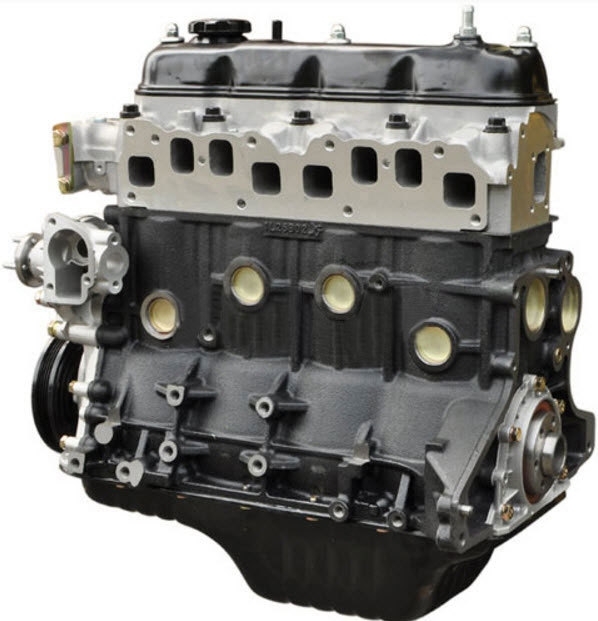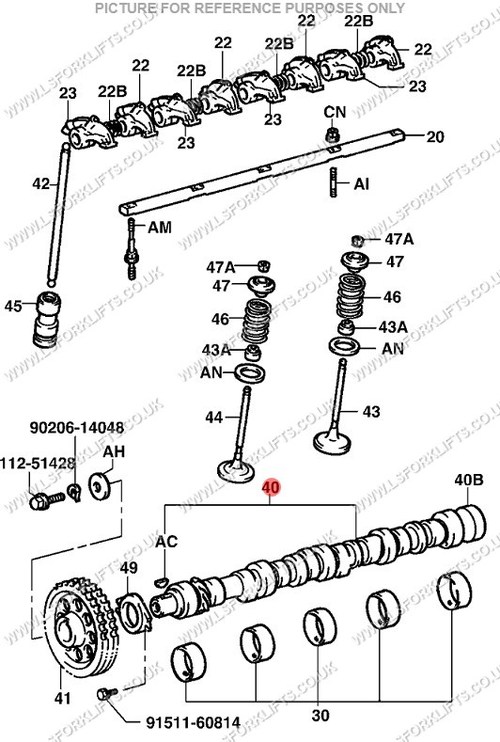Understanding the Mechanics Behind the 4Y Engine’s Power and Durability
Understanding the Mechanics Behind the 4Y Engine’s Power and Durability
Blog Article
The Ultimate Overview to the Engine: Trick Insights for every single Cars And Truck Fanatic
Recognizing the engine is fundamental for any kind of automobile fanatic, as it works as the heart of the vehicle and determines its performance. This overview offers an extensive examination of engine composition, types, and the mechanics behind their procedure, including the ingenious modern technologies that are improving the auto landscape. It underscores the critical nature of maintenance techniques that can significantly impact an engine's lifespan. The complexities of engine dynamics and the most current improvements in modern technology present concerns that warrant more expedition. What might these understandings reveal regarding the future of auto engineering?
Makeup of an Engine
Understanding the makeup of an engine is essential for any type of cars and truck fanatic seeking to dive much deeper right into automobile technicians. An interior burning engine largely is composed of a number of vital parts that operate in unison to convert gas right into mechanical power.
At the heart of this system exists the cyndrical tube block, which houses the cyndrical tubes where burning happens. Piston movement within these cyndrical tubes is promoted by the crankshaft, which converts direct motion right into rotational power. Furthermore, the camshaft plays a vital duty in managing the opening and closing of the engine's shutoffs, making certain appropriate air-fuel mix consumption and exhaust gas expulsion.
Other necessary parts consist of the fuel system, which supplies the engine with the needed fuel, and the ignition system, responsible for launching combustion - 4y engine. The cooling and lubrication systems are likewise essential, keeping ideal operating temperatures and minimizing friction, specifically
Engine Types and Configurations
A varied series of engine types and arrangements exists, each offering distinct benefits and drawbacks customized to various driving requirements and choices. One of the most common engine types consist of inline, V, flat, and rotary configurations.
Inline engines, including cylinders organized in a solitary line, are understood for their simpleness and efficiency. They are commonly discovered in portable vehicles, providing an equilibrium of power and economic situation. V engines, characterized by their two banks of cylinders prepared in a V shape, supply greater performance and smoother operation, making them prominent in sporting activities and luxury automobiles.
Flat engines, or fighter engines, have actually horizontally opposed cyndrical tubes, which add to a lower center of mass, boosting car stability. These are generally seen in brands like Subaru and Porsche.
Rotary engines, although much less usual, utilize a special layout with a triangular rotor and offer high power-to-weight ratios. They stand out in portable and light-weight applications, mainly seen in Mazda automobiles.
Each engine kind offers specific efficiency characteristics, weight distributions, and fuel effectiveness, ensuring that automobile lovers can choose the best engine arrangement to match their driving design and vehicle requirements.

Exactly How Engines Function
Engines, despite their kind or arrangement, run on essential concepts that regulate their performance and efficiency. At their core, engines transform fuel into power via a series of controlled explosions or compressions. This procedure typically entails four main strokes: intake, power, exhaust, and compression.
Throughout the consumption stroke, the engine attracts in a mix of air and gas. The compression stroke complies with, where the combination is pressed in the cylinder, enhancing its temperature level and stress. In the power stroke, a trigger fires up the compressed mixture (in fuel engines) or the blend fires up automatically (in diesel engines), causing a rapid development of gases that presses the piston down. The exhaust stroke expels the invested gases from the this article cylinder. 4y engine.
The performance of an engine is affected by numerous elements, consisting of the layout of the burning chamber, the kind of fuel utilized, and the accuracy of the engine's elements. Understanding these essential concepts is critical for cars and truck enthusiasts who look for to value the elaborate technicians behind their vehicles, in addition to for those aiming to improve performance with alterations and adjusting.
Advancements in Engine Innovation
In recent times, advancements in engine modern technology have actually considerably changed the auto landscape, enhancing both performance and ecological sustainability. Among one of the most notable developments is the advancement of turbocharging and supercharging, which permits smaller sized engines to generate greater power outcomes without compromising gas efficiency. This has resulted in an increase in the appeal of downsized engines, providing makers with the capability to satisfy rigorous discharges laws while maintaining performance requirements.
Furthermore, hybrid and electric powertrains are reshaping the engine paradigm. Hybrid systems combine internal burning engines with electrical motors, maximizing gas intake and lowering discharges. Totally electrical lorries (EVs) Full Article get rid of the burning engine entirely, counting on sophisticated battery technology to provide instant torque and outstanding acceleration.
Furthermore, the assimilation of artificial knowledge and maker knowing in engine management systems permits real-time optimization of efficiency specifications, enhancing performance and responsiveness. Developments such as variable valve timing and direct gas shot additionally improve combustion procedures, making the most of power result while decreasing waste.
As the auto sector remains to evolve, these technologies in engine innovation will play an essential duty fit the future of mobility, focusing on both performance and sustainability.
Upkeep Tips for Enthusiasts
Preserving an engine is as crucial as the developments that enhance its performance. Routine maintenance not just prolongs the life of your engine however likewise guarantees optimum performance. Begin with regular oil changes, adhering to the producer's suggestions for oil kind and modification intervals. Clean oil lubes engine components effectively, preventing deterioration.
Examine and replace air filters occasionally to make sure appropriate air movement, which is crucial for combustion performance. A clogged up air filter can lead to decreased performance and raised gas intake. In a similar way, keep track of the coolant degrees to stop getting too hot, and change coolant according to the solution timetable.

Final Thought
In verdict, a complete understanding of engine composition, kinds, and mechanics is necessary for automotive lovers. Regular maintenance techniques, including oil changes and air filter checks, are critical for guaranteeing optimum engine capability and longevity.

Engines, no matter of their kind or arrangement, run on fundamental principles that govern their performance and efficiency. In the power stroke, a spark fires up the compressed mix (in gas engines) or the mix sparks automatically (in diesel engines), resulting in a rapid expansion of gases that pushes the piston down.In recent years, innovations in engine innovation have considerably transformed the automotive landscape, improving both performance and ecological sustainability.
Report this page